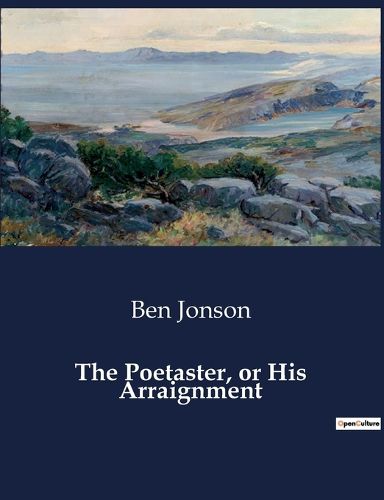Readings Newsletter
Become a Readings Member to make your shopping experience even easier.
Sign in or sign up for free!
You’re not far away from qualifying for FREE standard shipping within Australia
You’ve qualified for FREE standard shipping within Australia
The cart is loading…






"The Poetaster, or His Arraignment" by Ben Jonson is a satirical comedy that lampoons the literary and theatrical scene of Jacobean London. Set in ancient Rome, the play follows the rivalry between two poets, Horace and Crispinus, who vie for fame and recognition in the court of Emperor Augustus. Jonson uses the characters of Horace and Crispinus to satirize contemporary figures in the London literary world, including himself and his fellow playwrights. Through witty dialogue and biting humor, Jonson skewers the pretensions and vanities of those involved in the arts, as well as the political intrigues of the time. At the heart of the play is the character of Tucca, a swaggering braggart who serves as a parody of the Elizabethan stage clown. Tucca's antics add to the play's comedic elements and provide a colorful contrast to the more serious themes of artistic integrity and cultural criticism.
$9.00 standard shipping within Australia
FREE standard shipping within Australia for orders over $100.00
Express & International shipping calculated at checkout
"The Poetaster, or His Arraignment" by Ben Jonson is a satirical comedy that lampoons the literary and theatrical scene of Jacobean London. Set in ancient Rome, the play follows the rivalry between two poets, Horace and Crispinus, who vie for fame and recognition in the court of Emperor Augustus. Jonson uses the characters of Horace and Crispinus to satirize contemporary figures in the London literary world, including himself and his fellow playwrights. Through witty dialogue and biting humor, Jonson skewers the pretensions and vanities of those involved in the arts, as well as the political intrigues of the time. At the heart of the play is the character of Tucca, a swaggering braggart who serves as a parody of the Elizabethan stage clown. Tucca's antics add to the play's comedic elements and provide a colorful contrast to the more serious themes of artistic integrity and cultural criticism.